 Sèphera’s back today, talking about earning a living as a writer and specifically about Patreon and how it works.
Sèphera’s back today, talking about earning a living as a writer and specifically about Patreon and how it works.
One of the things that help people like me, single people who don’t have a partner to support me financially or emotionally or even with posting a tweet and trying to figure out how to earn a living and keep all the balls in the air and get the work flowing again, is a Patreon.
Nowadays, a lot of people can turn to fund-raising events like a Go Fund Me or a Kick Starter for a specific project and things like that. I myself had a very successful Go Fund Me a few years ago. I had hoped to go to the Stanley hotel for a writers’ retreat to try and get back on track with my writing and I wanted to pay my own way, but the recession was huge here with no jobs at all, not even Starbucks would hire me. I took Amanda Palmer’s advice and laid out some of my story on Go Fund Me and asked for help. People were very generous and kind and understood how important that this retreat was. It wasn’t just me trying to go to a retreat every year and make people pay for it. It was important for my mental health to really try to get there to be with horror peers and to see where my favorite book originated, there was rumour of casting for new horror TV show, and things like that. So, I got to do the retreat through incredible generosity from the horror community and I have been very grateful!
I saw another platform called Patreon which seemed to be a different approach. The first Patreon I started, I was trying to do it more like a Kick Starter and that was not successful at all. I was trying to write a book about ghosts and ghost hunting with major emphasis on the Lizzie Borden house and I also wanted to do a New England tour. I was trying to get funding for that through Patreon and I didn’t. Patreon is not for those things but back then it wasn’t really clear what Patreon was.
 I found Patreon because I kept seeing Amanda Palmer coming through the various aspects of my social media talking about “don’t be afraid to ask for help.” I saw her blogs and TED talk and she talks all the time about not being afraid to ask for help, being on Patreon, interacting with fans and so on. For those of you who don’t know, Amanda Palmer is married to author Neil Gaiman, so theoretically he reaps the rewards of her hugely success Patreon platform.
I found Patreon because I kept seeing Amanda Palmer coming through the various aspects of my social media talking about “don’t be afraid to ask for help.” I saw her blogs and TED talk and she talks all the time about not being afraid to ask for help, being on Patreon, interacting with fans and so on. For those of you who don’t know, Amanda Palmer is married to author Neil Gaiman, so theoretically he reaps the rewards of her hugely success Patreon platform.
I tried my Patreon again, taking her words more to heart than I did for the Go Fund Me and the first Patreon attempt. I restructured my Patreon and I’ve had it for over three years now.
When I first started it, I thought, “OK, I’m too depressed to write horror and so I’m going to write science fiction and I’m going to work on a space opera.”
For the first year I wrote a chapter a month for my space opera and I had one patron for the longest time (and I didn’t even know him in real life!) but then I started to realize from reading market reports that where I want to send it won’t take work that is previously on the Internet and specifically named Patreon as being previously published so I removed my monthly installations from my Patreon.
Now, my main goal is to show people the crazy writer’s life that I lead since a lot of people tell me my life is weird and it is and so I share my life with my patrons. I write or video several blogs a week, I talk about if I’m on a TV show or movie, I discuss what’s  bugging me, I am disgusted with my weight, weird things happened to me such as I burned myself waitressing. Patrons of a certain level got to see pictures of my horrible burns and scars. I get weird allergies, so my patrons get to see my face all puffed up with hives and silly things like that. I might sing or do other stuff but it’s all part of the writing process, part of the being a creative human being process and so I like to amuse my patrons with various things. Sometimes I’m able to share short stories I’m working on, depending on which market I’m writing them for. Sometimes I’ll just put up rough drafts. Sometimes I’ll just put up the cue cards for the character notes, it depends on the project. There are three books I keep working on and off on for over the last few years. When they are finished, my patrons of a specific level will be acknowledged in the professionally published books. All of my patrons are thanked whenever I can on some YouTube videos. I did thank some patrons in a couple of books I republished that had been published long before I ever had a Patreon (A Penny Saved, Captured Souls, Gilda and the Prince). My patrons got to see the rough version of this blog post!
bugging me, I am disgusted with my weight, weird things happened to me such as I burned myself waitressing. Patrons of a certain level got to see pictures of my horrible burns and scars. I get weird allergies, so my patrons get to see my face all puffed up with hives and silly things like that. I might sing or do other stuff but it’s all part of the writing process, part of the being a creative human being process and so I like to amuse my patrons with various things. Sometimes I’m able to share short stories I’m working on, depending on which market I’m writing them for. Sometimes I’ll just put up rough drafts. Sometimes I’ll just put up the cue cards for the character notes, it depends on the project. There are three books I keep working on and off on for over the last few years. When they are finished, my patrons of a specific level will be acknowledged in the professionally published books. All of my patrons are thanked whenever I can on some YouTube videos. I did thank some patrons in a couple of books I republished that had been published long before I ever had a Patreon (A Penny Saved, Captured Souls, Gilda and the Prince). My patrons got to see the rough version of this blog post!
A lot of people consider Patreon to be begging. This means they don’t understand what it’s about. There are, I think, over a million creators on Patreon now. When I joined, there were a couple thousand, now there are over a million.
There are a lot of very important famous people on Patreon who have thousands of patrons in that they make thousands of dollars a month on Patreon. There are huge writers on Patreon who make thousands of dollars a month. Everybody expects something different with what they want to give and with what they want to receive.
I like to think that since I do a lot of things, I offer different experiences. Patreon is only one of many ways I attempt to earn an income so that I can get back to the business of creating actual novels and other entertainments for people. I do love to entertain other people. But when I see people calling Patreon creators “beggers” I always find that upsetting.
Patreon is more like a subscription service. There are writers who write books in a month on there. There are musicians who will create songs for you. Artists who will draw for you. YouTubers who will mention you. It’s endless in what you can offer and receive. I would bet many of us creators on Patreon work pretty hard for your subscription.
 I look around on Patreon sometimes. You can only see so much if you’re not actually paying however, I do notice that some writers have Patreons and they haven’t even posted for their followers in over a year, sometimes many months, and yet they still are getting thousands of dollars. So this shows that those of you who are thinking about setting up a Patreon but not sure what to offer, some fans just want you just to get those books written and out in the world and they don’t care if you actually post on the platform, they just want to support you in your career and help you get some dental work done or see a doctor or whatever.
I look around on Patreon sometimes. You can only see so much if you’re not actually paying however, I do notice that some writers have Patreons and they haven’t even posted for their followers in over a year, sometimes many months, and yet they still are getting thousands of dollars. So this shows that those of you who are thinking about setting up a Patreon but not sure what to offer, some fans just want you just to get those books written and out in the world and they don’t care if you actually post on the platform, they just want to support you in your career and help you get some dental work done or see a doctor or whatever.
Speaking of which…here in Ontario, yes, we have free health care as in going to the doctor but if anything’s wrong with you, you have to deal with it. I’ve been be so grateful to my patrons that I’ve been able to get prescriptions when I got bit by a dog, had to get various prescriptions and bandages for burns and allergies, when I didn’t have money in my bank account for such things. I dream of the day I can see the dentist for the first time in ten years if my teeth stop falling out so that I have some teeth left to fix. Whether it’s through an influx of pledges from Patrons (I’d need a few hundred patrons!) or whether it’s from advances and royalties from work I’ve been inspired to create because I have patrons rooting for me doesn’t matter.
I have some health issues, a shaky hand for a few years that is growing worse every day, so my waitressing days are over. One can’t discount the impact that emotional illnesses can have on a creative person and yes, we have free “healthcare” here in Canada, but we have to pay for dentists, eye doctors, prescriptions of every kind, birth control, psychiatrists and psychologists, therapy, counsellors, chiropractors, and more. We can get diagnosed by a family doctor and can get “free” surgery, but god help you if you have anything you need to take drugs for and don’t have insurance. I’ve had dozens of jobs over the decades and have never once had insurance as it’s not a given widely here as it is in the States. I’m supposed to be on a few prescriptions like anti-depressants and anti-anxiety medication and something related to the gall bladder operation, but I can’t afford them, so I just plow on through and lose days/weeks/months of work when the Black Dogs bark.
When you’re going through trauma, “going out and getting a job” isn’t so easy and when you have no present-day skills and are over fifty, well…
These days, everyone is an editor and the fees that hobby editors charge are destroying the industry much as writers who write for free destroy opportunities for all writers to get paid better. It also seems that everyone is now a tarot card reader as well so my tarot business has also been destroyed when people can get cheap/free tarot readings everywhere including from apps instead of paying a proper wage for skilled, professional work. My safety guard backup careers are just as unreliable as writing at this point. Background work pays minimum wage and I usually work one day a month. So, what do you do when you’re pushing sixty and divorced and lost everything you ever had?
So, my longwinded point in this blog, is that, ladies, especially single ladies (even if you’re married) who get nothing from the government, nothing from any spouses−I don’t get any support from anyone except my patrons−ladies, consider starting a Patreon. Patreon is a blessing for me, emotionally and financially.
I’m happy to see more people join the platform. Everyone who has joined my Patreon has stayed on the ride. Only one person ever quit on me ever in all the time I’ve had my Patreon.
 So maybe I’m doing something right. I don’t know but it’s a fun platform for me. It keeps me from being depressed and from spending days going “what the fuck is my life?” because I have to answer to my patrons. I do make schedules and I try to hit them. I take pictures and videos at events, knowing I’ll be sharing them with my patrons. It’s helping me get back on my feet, really helping me focus on having most of my space opera finished, most of my next Witch Upon a Star book is nearly finished and I’m almost halfway through my next horror book.
So maybe I’m doing something right. I don’t know but it’s a fun platform for me. It keeps me from being depressed and from spending days going “what the fuck is my life?” because I have to answer to my patrons. I do make schedules and I try to hit them. I take pictures and videos at events, knowing I’ll be sharing them with my patrons. It’s helping me get back on my feet, really helping me focus on having most of my space opera finished, most of my next Witch Upon a Star book is nearly finished and I’m almost halfway through my next horror book.
My Women in Horror Month wish for all of you is to start a Patreon if you don’t have one. And if you have some extra money kicking around, consider supporting an artist or two on Patreon. Even if you sponsor for $1, when one hundred people give $1, that’s $100! (minus Patreon fees, of course!)
Be warned, you cannot find someone on there. Their search function sucks. There is no way to look for writers or anyone else, even if you punch in their name! The only way you can find someone on Patreon is if you already know they are there. Feel free to add your links at the bottom of this blog.
Patreon is a really great tool for getting focused and organized, building your fan base and rewarding your fan base. You can create whatever rewards you want depending on whatever it is you do and your finances.
Interesting that three times I put a call out on my Facebook for people, women, to post their links for a Women in Horror Month article I was writing about Patreon. I was hoping for lots of women for this article. But much like calls for horror stories and novels, men are quicker to respond. In a nutshell, you can see by the Patreon response, how it likely reflects horror writer submissions.
Even though I have nearly four thousand Facebook friends, you can see here, how many people shared their links.
Do we need a Women in Horror Month? I’m still not sure. But I do know that some of us sometimes need a helping hand to get back on our feet, or maybe to get on them for the first time. Keep writing and more importantly, submitting. Don’t worry if you’re a woman; you’re a WRITER! Use your real name and stand proud behind your work.
First, let’s acknowledge Amanda Palmer who drew my attention to this ride:
https://www.patreon.com/amandapalmer
http://www.patreon.com/sephera
https://www.patreon.com/GaryABraunbeck
Http://www.patreon.com/monicaskuebler
https://patreon.com/maryrajotte
https://www.patreon.com/user?u=1002984
https://www.patreon.com/user?u=2887829
https://www.patreon.com/ObnoxiousAnonymous
https://www.patreon.com/westonochse
 Sèphera Girón is an author, actor, tarot card reader, and mom. She has over twenty published books. Watch for Taurus in the Witch Upon a Star series to be released this year from Riverdale Avenue Books. She has stories in Dark Rainbow, Dawn of the Monsters, Abandon, Group Hex 1 and Group Hex 2, Intersections: Six Tales of Ouija Horror and more. Sèphera is the astrologer for Romance Daily News. Be sure to watch for her monthly horoscopes at https://www.romancedailynews.com/ Sèphera lives in Toronto.
Sèphera Girón is an author, actor, tarot card reader, and mom. She has over twenty published books. Watch for Taurus in the Witch Upon a Star series to be released this year from Riverdale Avenue Books. She has stories in Dark Rainbow, Dawn of the Monsters, Abandon, Group Hex 1 and Group Hex 2, Intersections: Six Tales of Ouija Horror and more. Sèphera is the astrologer for Romance Daily News. Be sure to watch for her monthly horoscopes at https://www.romancedailynews.com/ Sèphera lives in Toronto.
Drop by Sèphera’s Twitch TV channel and get a free daily tarot card reading. Be sure to follow so you know when she’s online. Click Witch Upon a Star for her series. Sèphera can also be found on her website, her Tarot Card Reading website, Instagram, and Twitter. Check out Sèphera on YouTube. Be sure to follow so you know when the next video is uploaded!
Sèphera’s courses are also available on Udemy!
https://www.udemy.com/secrets-of-a-background-performer/?couponCode=BGYOUTUBE3
https://www.udemy.com/read-tarot-cards/?couponCode=TAROTCARDYOUTUBE
https://www.udemy.com/so-you-want-to-be-a-horror-writer/?couponCode=BLOGHORROR2

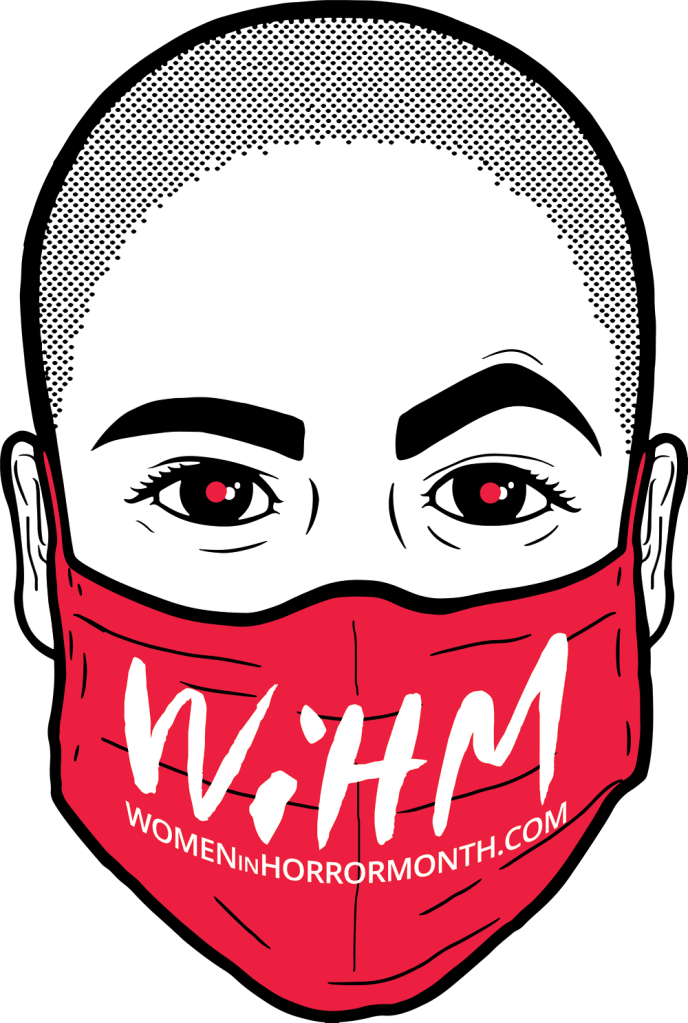
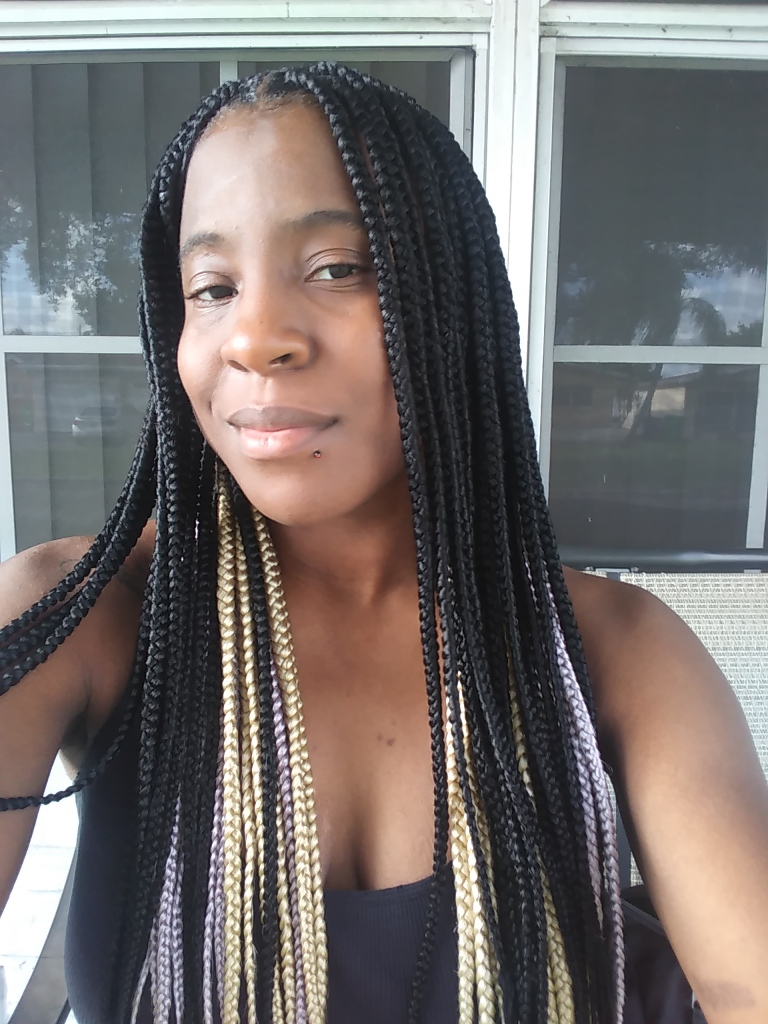
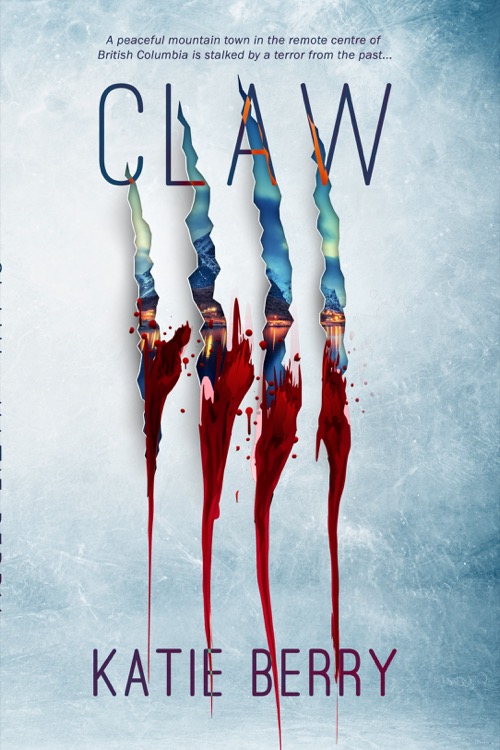
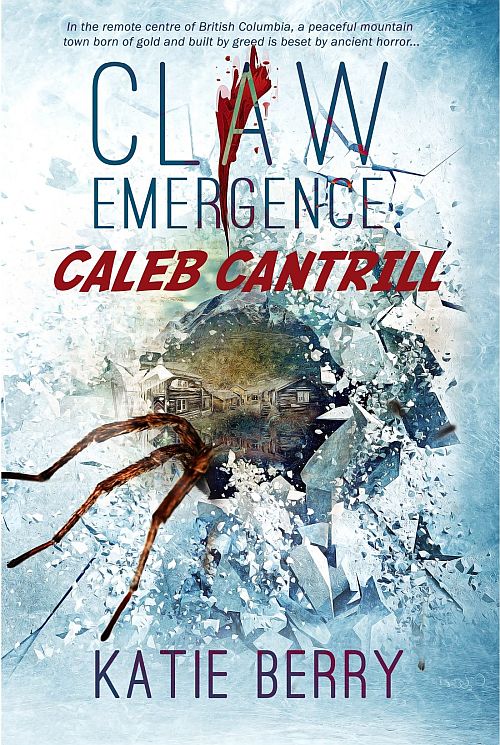
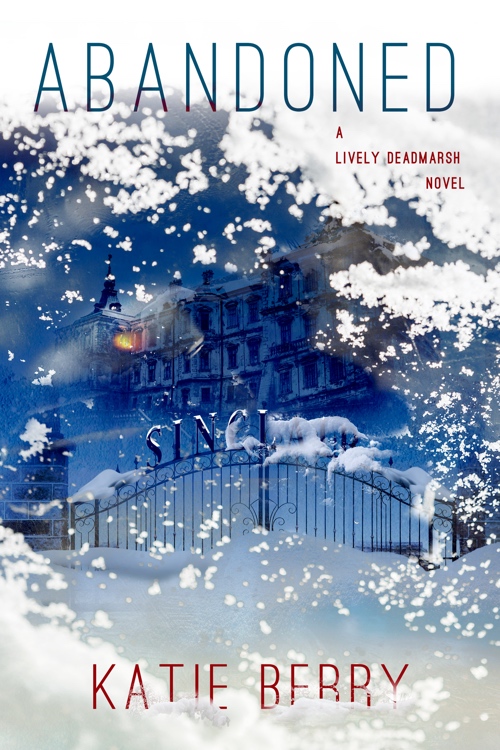
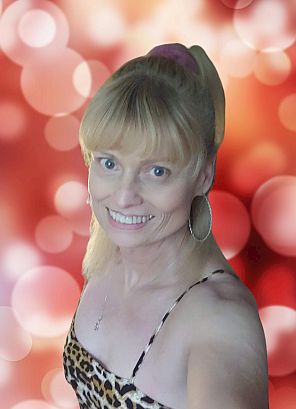
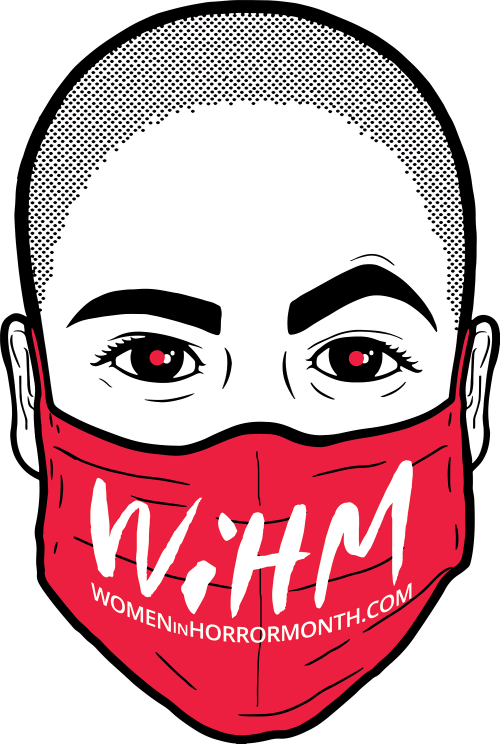
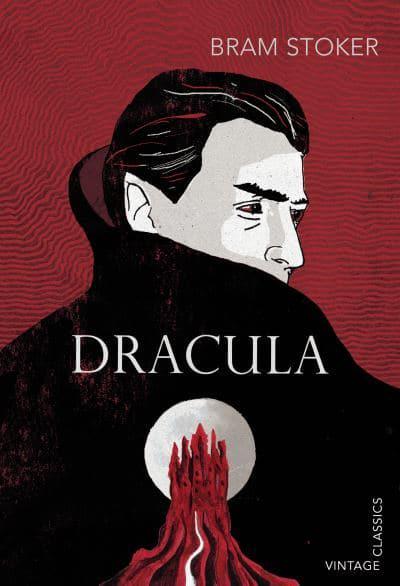

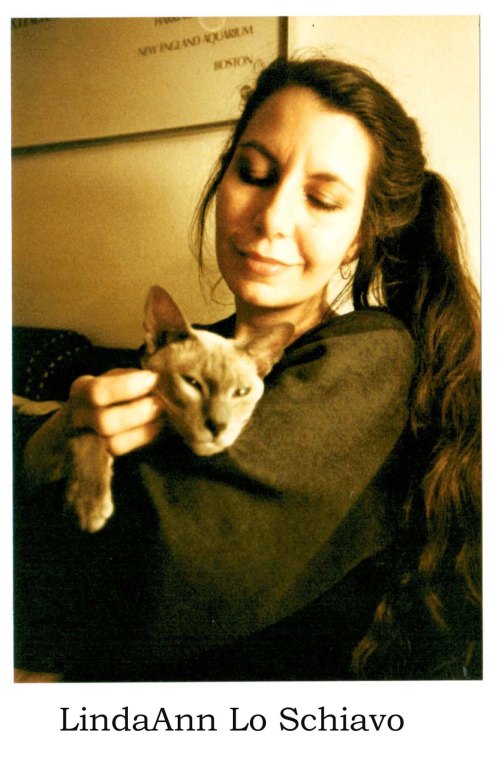
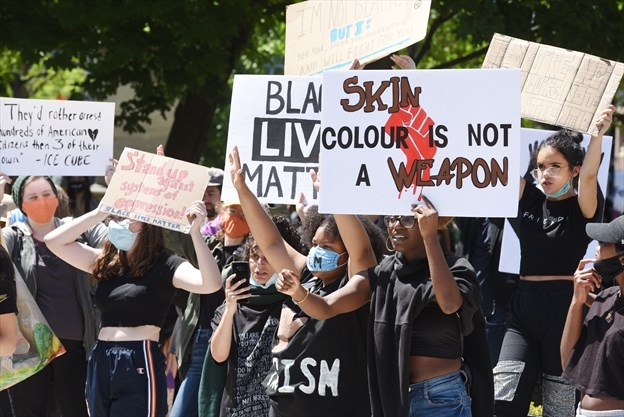
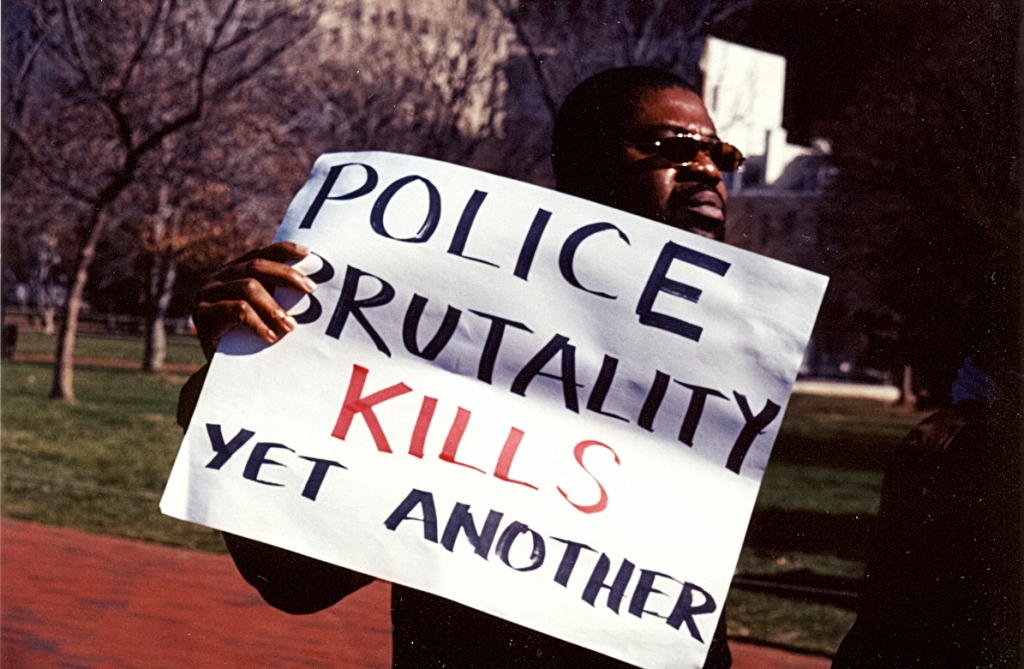
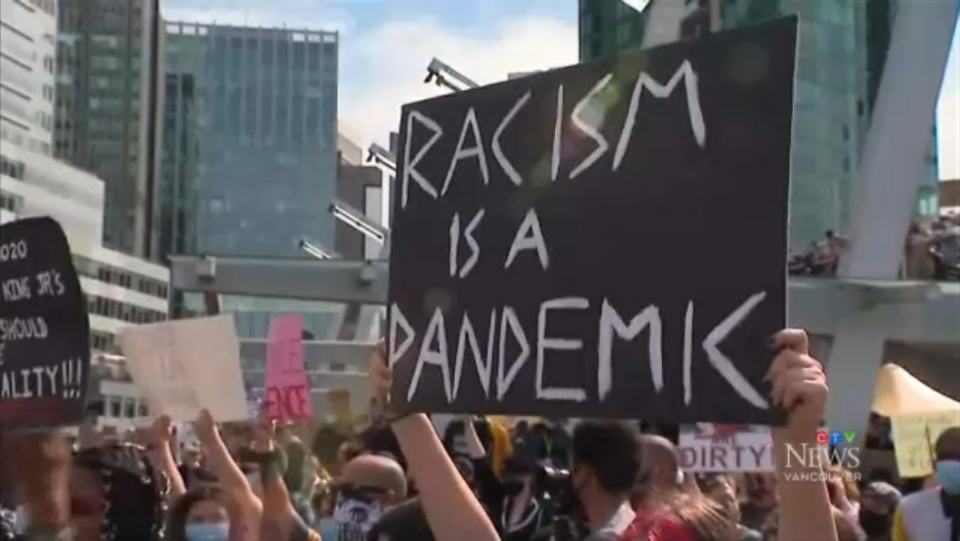
 What do you think is the most difficult aspect in writing poetry?
What do you think is the most difficult aspect in writing poetry? we want to remember on our mind’s altars and the things we’d rather forget. I’m currently working on a collection I’ve called Sugar Skull Songs about the darker side of femininity. I am nearly done with the follow up to my Bitter Suites, my 2018 Bram Stoker Awards finalist and of course Space and Time magazine keeps me busier than I ever thought possible. I have a few short stories popping up in different anthologies and magazines over the next year as well.
we want to remember on our mind’s altars and the things we’d rather forget. I’m currently working on a collection I’ve called Sugar Skull Songs about the darker side of femininity. I am nearly done with the follow up to my Bitter Suites, my 2018 Bram Stoker Awards finalist and of course Space and Time magazine keeps me busier than I ever thought possible. I have a few short stories popping up in different anthologies and magazines over the next year as well. Angela Yuriko Smith is an American poet, publisher and author. Her first collection of poetry, In Favor of Pain, was nominated for a 2017 Elgin Award. Her novella, Bitter Suites, is a 2018 Bram Stoker Awards Finalist. In 2019 she won the SFPA’s poetry contest in the dwarf form category. She co-publishes Space and Time magazine, a 53 year old publication dedicated to fantasy, horror and science fiction. For more information visit
Angela Yuriko Smith is an American poet, publisher and author. Her first collection of poetry, In Favor of Pain, was nominated for a 2017 Elgin Award. Her novella, Bitter Suites, is a 2018 Bram Stoker Awards Finalist. In 2019 she won the SFPA’s poetry contest in the dwarf form category. She co-publishes Space and Time magazine, a 53 year old publication dedicated to fantasy, horror and science fiction. For more information visit 
 My guest today is Michelle Scalise. Her poetry punches hard and all the more wrenching for its reality.
My guest today is Michelle Scalise. Her poetry punches hard and all the more wrenching for its reality. My latest collection, DRAGONFLY AND SONGS OF MOURNING (LVP Publications 2019) is about the death of my husband, novelist Tom Piccirilli, of cancer. Most poets who write in the horror genre use death a lot but this is personal. It was also the only work I’ve ever done that was painful to write. My last collection THE MANUFACTURER OF SORROW (Eldritch Press) doesn’t have a theme. I am always writing about scarred childhoods and turning the image of mothers into monsters. That’s my way of fighting back at my past. Both of my short story collections also contain poems.
My latest collection, DRAGONFLY AND SONGS OF MOURNING (LVP Publications 2019) is about the death of my husband, novelist Tom Piccirilli, of cancer. Most poets who write in the horror genre use death a lot but this is personal. It was also the only work I’ve ever done that was painful to write. My last collection THE MANUFACTURER OF SORROW (Eldritch Press) doesn’t have a theme. I am always writing about scarred childhoods and turning the image of mothers into monsters. That’s my way of fighting back at my past. Both of my short story collections also contain poems. Horror, Darker Side, Mortis Operendi I, Dark Arts, The Big Book of Erotic Ghost Stories, Best Women’s Erotica, and such magazines as Cemetery Dance, Crimewave, Space and Time, and Dark Discoveries. She was nominated for the 2010 Spectrum Award, which honors outstanding works of fantasy and horror that include positive gay characters. Her poetry has been nominated for the Elgin Award and the Rhysling Award. Her fiction has received honorable mention in Year’s Best Fantasy and Horror. Her fiction collection, Collective Suicide, was published by Crossroad Press in 2012. In 2014, Eldritch Press published a collection of her poetry, The Manufacturer of Sorrow in paperback and ebook. It became a bestseller in the women writers category on Amazon. In May of 2019, her latest collection of poetry, Dragonfly and Other Songs of Mourning, was published by Lycan Valley Press. It has made the preliminary ballet for the Bram Stoker Award. Michelle is an active member of the HWA and the SFPA.
Horror, Darker Side, Mortis Operendi I, Dark Arts, The Big Book of Erotic Ghost Stories, Best Women’s Erotica, and such magazines as Cemetery Dance, Crimewave, Space and Time, and Dark Discoveries. She was nominated for the 2010 Spectrum Award, which honors outstanding works of fantasy and horror that include positive gay characters. Her poetry has been nominated for the Elgin Award and the Rhysling Award. Her fiction has received honorable mention in Year’s Best Fantasy and Horror. Her fiction collection, Collective Suicide, was published by Crossroad Press in 2012. In 2014, Eldritch Press published a collection of her poetry, The Manufacturer of Sorrow in paperback and ebook. It became a bestseller in the women writers category on Amazon. In May of 2019, her latest collection of poetry, Dragonfly and Other Songs of Mourning, was published by Lycan Valley Press. It has made the preliminary ballet for the Bram Stoker Award. Michelle is an active member of the HWA and the SFPA. Today’s guest in Sara Tantlinger, another pretty amazing poet.
Today’s guest in Sara Tantlinger, another pretty amazing poet. And then my collection The Devil’s Dreamland, which won the 2018 Bram Stoker Award, was inspired by the life and lies of serial killer H.H. Holmes. The poems dip into his point of view pretty heavily, but I also included poems from the perspective of his victims, the city, and his murder castle in 1800s Chicago.
And then my collection The Devil’s Dreamland, which won the 2018 Bram Stoker Award, was inspired by the life and lies of serial killer H.H. Holmes. The poems dip into his point of view pretty heavily, but I also included poems from the perspective of his victims, the city, and his murder castle in 1800s Chicago. Poetry Inspired by H.H. Holmes. She is a poetry editor for the Oddville Press, a graduate of Seton Hill’s MFA program, a member of the SFPA, and an active member of the HWA. Her other books include Love for Slaughter and To Be Devoured. Her poetry, flash fiction, and short stories can be found in several magazines and anthologies, including The Twisted Book of Shadows, Sunlight Press, Unnerving, and Abyss & Apex. She embraces all things strange and can be found lurking in graveyards or on Twitter @SaraJane524 and at
Poetry Inspired by H.H. Holmes. She is a poetry editor for the Oddville Press, a graduate of Seton Hill’s MFA program, a member of the SFPA, and an active member of the HWA. Her other books include Love for Slaughter and To Be Devoured. Her poetry, flash fiction, and short stories can be found in several magazines and anthologies, including The Twisted Book of Shadows, Sunlight Press, Unnerving, and Abyss & Apex. She embraces all things strange and can be found lurking in graveyards or on Twitter @SaraJane524 and at  Bram Stoker Award nomination this year. “Sheets On A Line” is inspired by Dolores Claiborne.
Bram Stoker Award nomination this year. “Sheets On A Line” is inspired by Dolores Claiborne.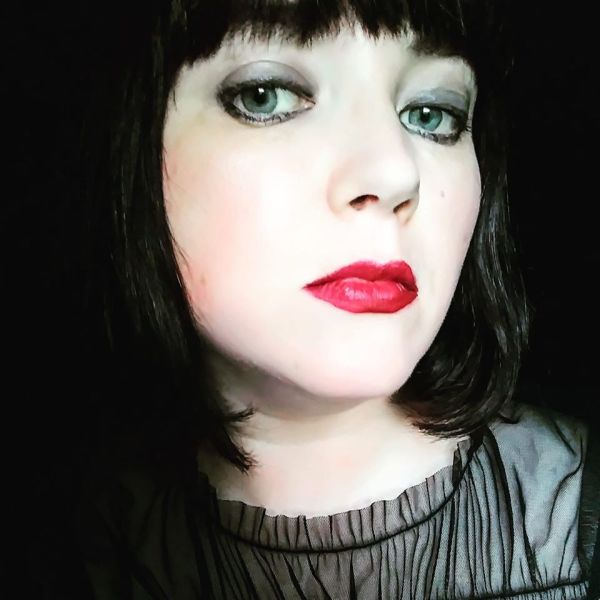 as Eastern Iowa Review, Barren Magazine, and Corvid Queen, as well as in several anthologies such as Beyond The Hill and Two Eyes Open. Her books of horror poetry, The Madness In Our Marrow and Tall Grass, have both made the preliminary ballot for a Bram Stoker Award nomination. She is also a nominee for the Best of the Net Award and the Pushcart Prize. Amanda currently lives in Kentucky with her husband and two children.
as Eastern Iowa Review, Barren Magazine, and Corvid Queen, as well as in several anthologies such as Beyond The Hill and Two Eyes Open. Her books of horror poetry, The Madness In Our Marrow and Tall Grass, have both made the preliminary ballot for a Bram Stoker Award nomination. She is also a nominee for the Best of the Net Award and the Pushcart Prize. Amanda currently lives in Kentucky with her husband and two children.
 I’ve always been interested in sound, place, gender, and the question of what’s real (when and for whom, too). The fifth and latest book, The State She’s In, epitomizes those obsessions: it takes on what it means to live in Virginia right now, in light of the state’s terrible history and its beautiful more-than-human features. There are some spell poems—I’m still writing those, maybe for the next book?—although a good share of the horror is political. It’s also about menopause. I’m here to testify that turning 50 has some terrifying moments and can be major hinge in a person’s life.
I’ve always been interested in sound, place, gender, and the question of what’s real (when and for whom, too). The fifth and latest book, The State She’s In, epitomizes those obsessions: it takes on what it means to live in Virginia right now, in light of the state’s terrible history and its beautiful more-than-human features. There are some spell poems—I’m still writing those, maybe for the next book?—although a good share of the horror is political. It’s also about menopause. I’m here to testify that turning 50 has some terrifying moments and can be major hinge in a person’s life.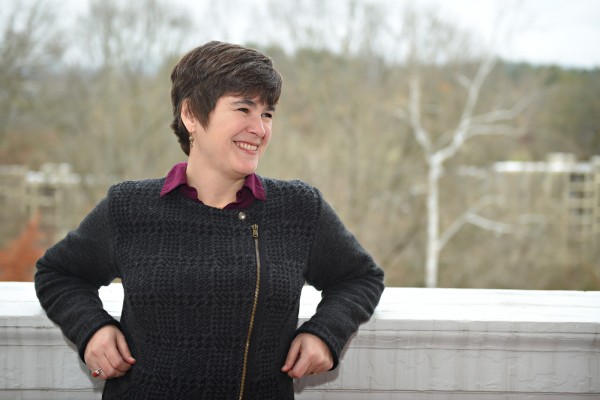 Lesley Wheeler is a writer and professor born in New York, raised in New Jersey, and residing in Virginia. Her first novel, Unbecoming, is forthcoming from Aqueduct Press. Tinderbox Editions will publish her next poetry collection, The State She’s In, in 2020 as well as an essay collection, Poetry’s Possible Worlds, in 2021. She is Poetry Editor of Shenandoah. Wheeler’s previous poetry collections are
Lesley Wheeler is a writer and professor born in New York, raised in New Jersey, and residing in Virginia. Her first novel, Unbecoming, is forthcoming from Aqueduct Press. Tinderbox Editions will publish her next poetry collection, The State She’s In, in 2020 as well as an essay collection, Poetry’s Possible Worlds, in 2021. She is Poetry Editor of Shenandoah. Wheeler’s previous poetry collections are  Sèphera’s back today, talking about earning a living as a writer and specifically about Patreon and how it works.
Sèphera’s back today, talking about earning a living as a writer and specifically about Patreon and how it works. I found Patreon because I kept seeing Amanda Palmer coming through the various aspects of my social media talking about “don’t be afraid to ask for help.” I saw her blogs and TED talk and she talks all the time about not being afraid to ask for help, being on Patreon, interacting with fans and so on. For those of you who don’t know, Amanda Palmer is married to author Neil Gaiman, so theoretically he reaps the rewards of her hugely success Patreon platform.
I found Patreon because I kept seeing Amanda Palmer coming through the various aspects of my social media talking about “don’t be afraid to ask for help.” I saw her blogs and TED talk and she talks all the time about not being afraid to ask for help, being on Patreon, interacting with fans and so on. For those of you who don’t know, Amanda Palmer is married to author Neil Gaiman, so theoretically he reaps the rewards of her hugely success Patreon platform. bugging me, I am disgusted with my weight, weird things happened to me such as I burned myself waitressing. Patrons of a certain level got to see pictures of my horrible burns and scars. I get weird allergies, so my patrons get to see my face all puffed up with hives and silly things like that. I might sing or do other stuff but it’s all part of the writing process, part of the being a creative human being process and so I like to amuse my patrons with various things. Sometimes I’m able to share short stories I’m working on, depending on which market I’m writing them for. Sometimes I’ll just put up rough drafts. Sometimes I’ll just put up the cue cards for the character notes, it depends on the project. There are three books I keep working on and off on for over the last few years. When they are finished, my patrons of a specific level will be acknowledged in the professionally published books. All of my patrons are thanked whenever I can on some YouTube videos. I did thank some patrons in a couple of books I republished that had been published long before I ever had a Patreon (A Penny Saved, Captured Souls, Gilda and the Prince). My patrons got to see the rough version of this blog post!
bugging me, I am disgusted with my weight, weird things happened to me such as I burned myself waitressing. Patrons of a certain level got to see pictures of my horrible burns and scars. I get weird allergies, so my patrons get to see my face all puffed up with hives and silly things like that. I might sing or do other stuff but it’s all part of the writing process, part of the being a creative human being process and so I like to amuse my patrons with various things. Sometimes I’m able to share short stories I’m working on, depending on which market I’m writing them for. Sometimes I’ll just put up rough drafts. Sometimes I’ll just put up the cue cards for the character notes, it depends on the project. There are three books I keep working on and off on for over the last few years. When they are finished, my patrons of a specific level will be acknowledged in the professionally published books. All of my patrons are thanked whenever I can on some YouTube videos. I did thank some patrons in a couple of books I republished that had been published long before I ever had a Patreon (A Penny Saved, Captured Souls, Gilda and the Prince). My patrons got to see the rough version of this blog post! I look around on Patreon sometimes. You can only see so much if you’re not actually paying however, I do notice that some writers have Patreons and they haven’t even posted for their followers in over a year, sometimes many months, and yet they still are getting thousands of dollars. So this shows that those of you who are thinking about setting up a Patreon but not sure what to offer, some fans just want you just to get those books written and out in the world and they don’t care if you actually post on the platform, they just want to support you in your career and help you get some dental work done or see a doctor or whatever.
I look around on Patreon sometimes. You can only see so much if you’re not actually paying however, I do notice that some writers have Patreons and they haven’t even posted for their followers in over a year, sometimes many months, and yet they still are getting thousands of dollars. So this shows that those of you who are thinking about setting up a Patreon but not sure what to offer, some fans just want you just to get those books written and out in the world and they don’t care if you actually post on the platform, they just want to support you in your career and help you get some dental work done or see a doctor or whatever. So maybe I’m doing something right. I don’t know but it’s a fun platform for me. It keeps me from being depressed and from spending days going “what the fuck is my life?” because I have to answer to my patrons. I do make schedules and I try to hit them. I take pictures and videos at events, knowing I’ll be sharing them with my patrons. It’s helping me get back on my feet, really helping me focus on having most of my space opera finished, most of my next Witch Upon a Star book is nearly finished and I’m almost halfway through my next horror book.
So maybe I’m doing something right. I don’t know but it’s a fun platform for me. It keeps me from being depressed and from spending days going “what the fuck is my life?” because I have to answer to my patrons. I do make schedules and I try to hit them. I take pictures and videos at events, knowing I’ll be sharing them with my patrons. It’s helping me get back on my feet, really helping me focus on having most of my space opera finished, most of my next Witch Upon a Star book is nearly finished and I’m almost halfway through my next horror book. Sèphera Girón is an author, actor, tarot card reader, and mom. She has over twenty published books. Watch for Taurus in the Witch Upon a Star series to be released this year from Riverdale Avenue Books. She has stories in Dark Rainbow, Dawn of the Monsters, Abandon, Group Hex 1 and Group Hex 2, Intersections: Six Tales of Ouija Horror and more. Sèphera is the astrologer for Romance Daily News. Be sure to watch for her monthly horoscopes at
Sèphera Girón is an author, actor, tarot card reader, and mom. She has over twenty published books. Watch for Taurus in the Witch Upon a Star series to be released this year from Riverdale Avenue Books. She has stories in Dark Rainbow, Dawn of the Monsters, Abandon, Group Hex 1 and Group Hex 2, Intersections: Six Tales of Ouija Horror and more. Sèphera is the astrologer for Romance Daily News. Be sure to watch for her monthly horoscopes at